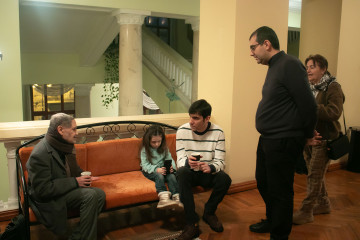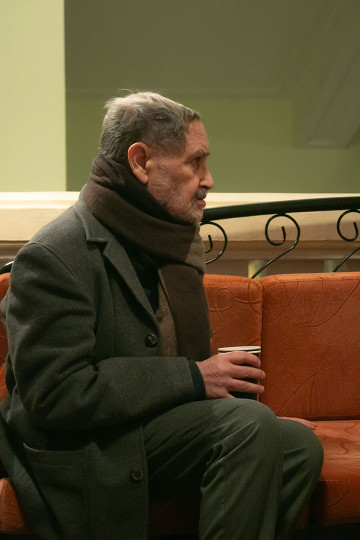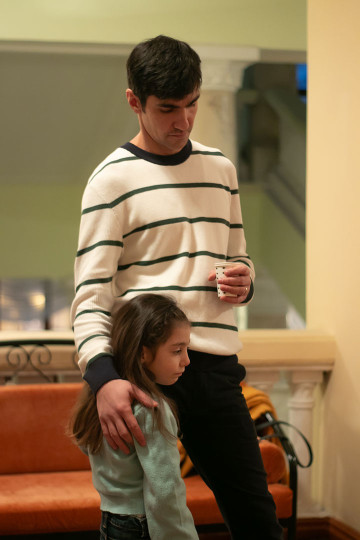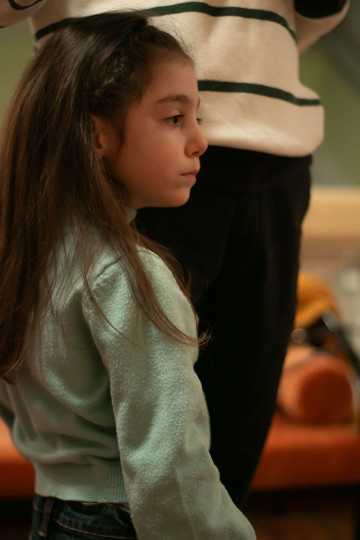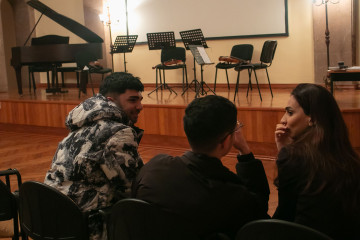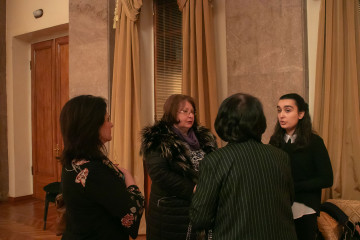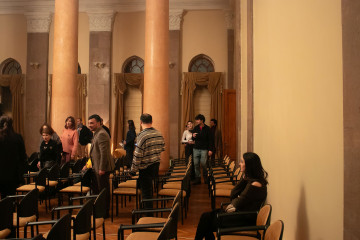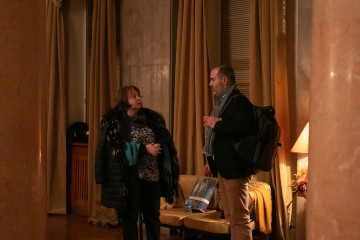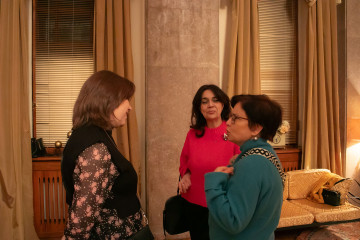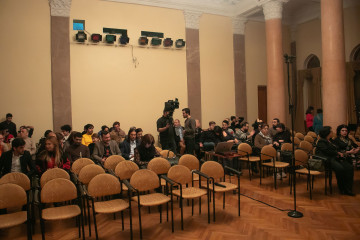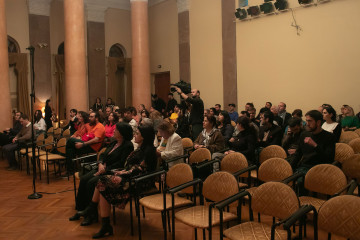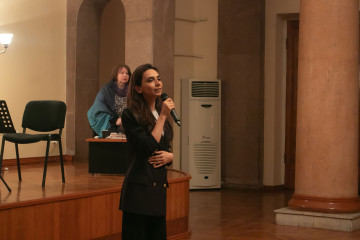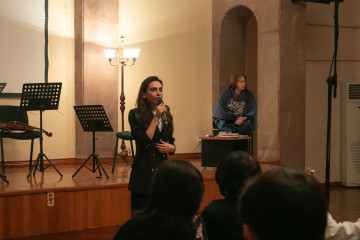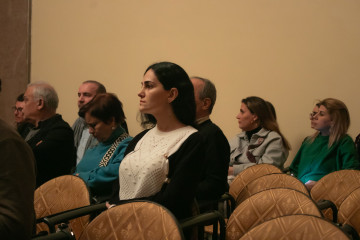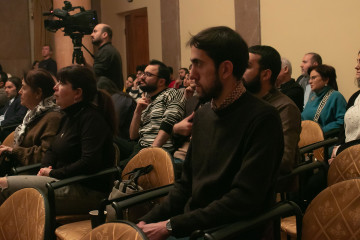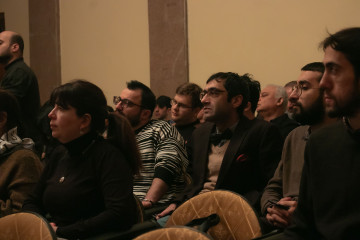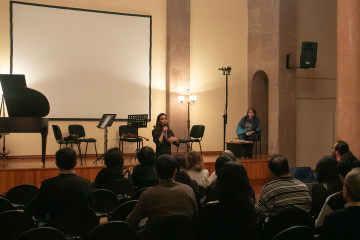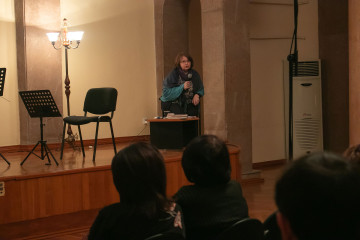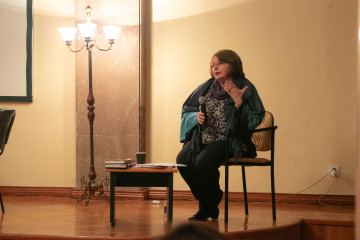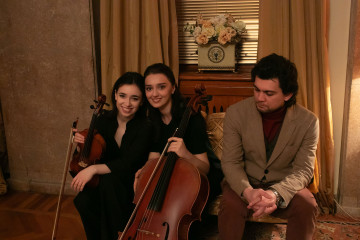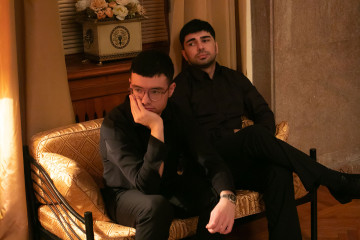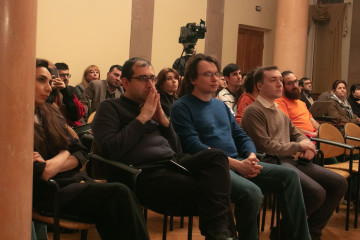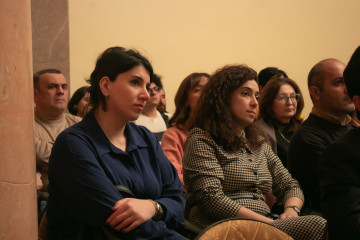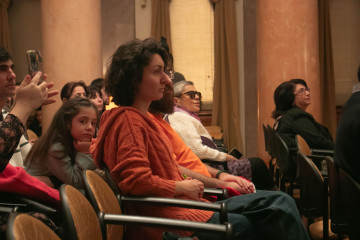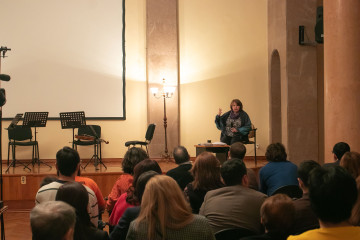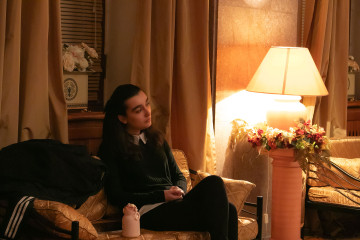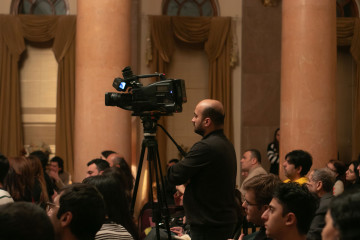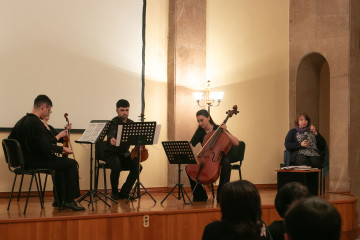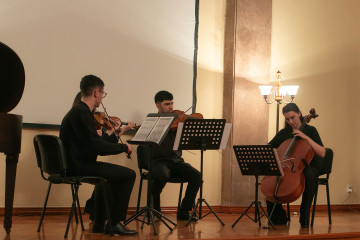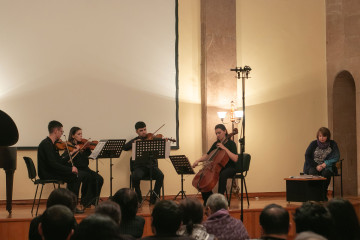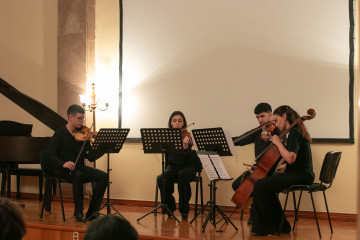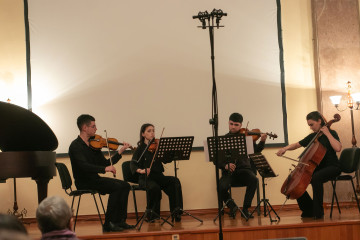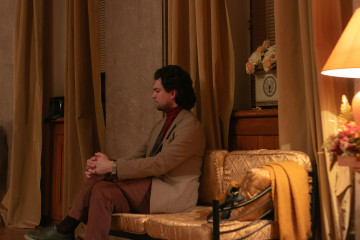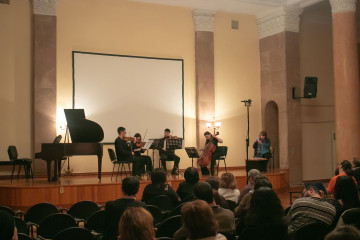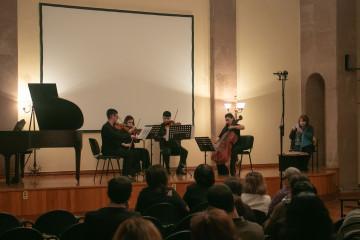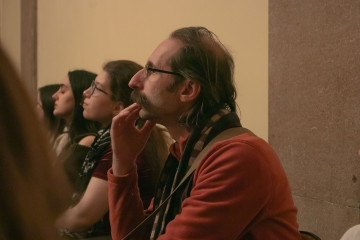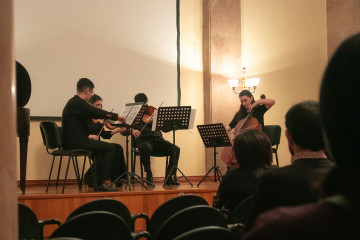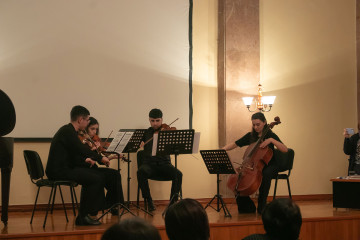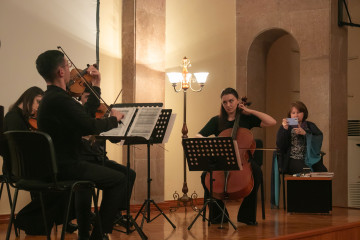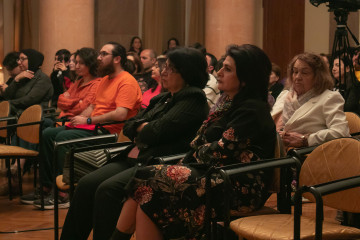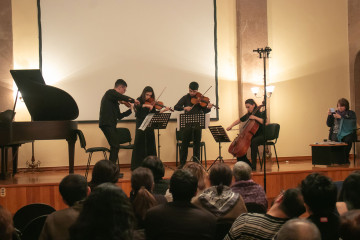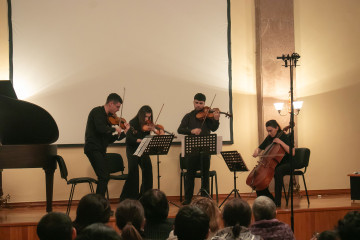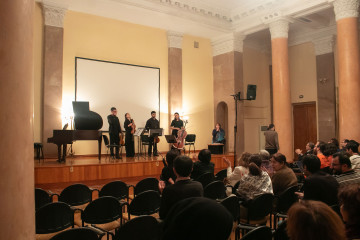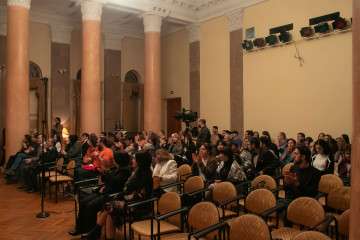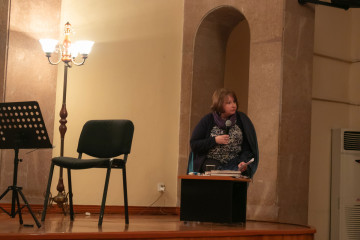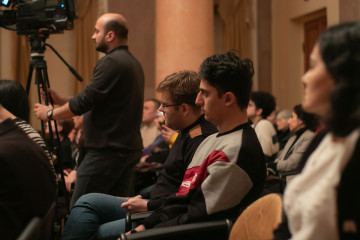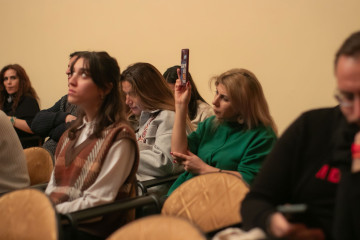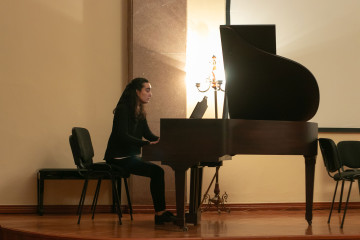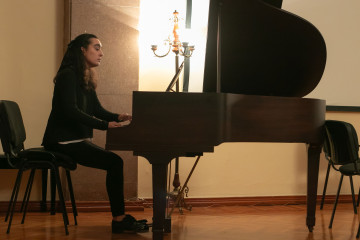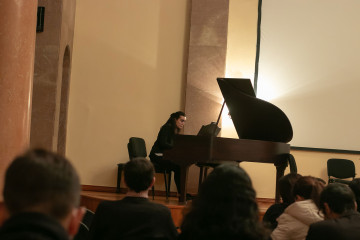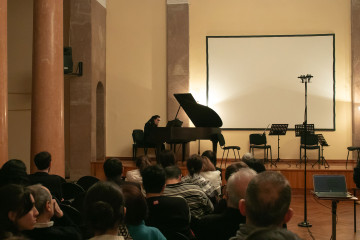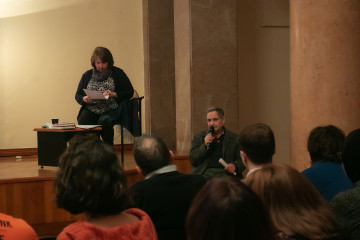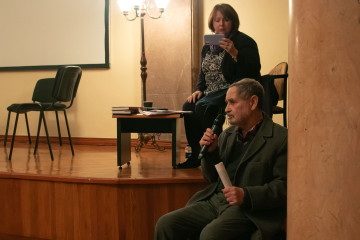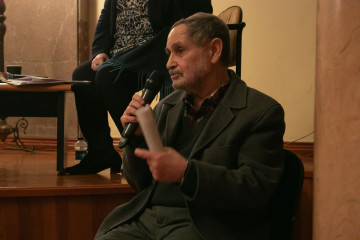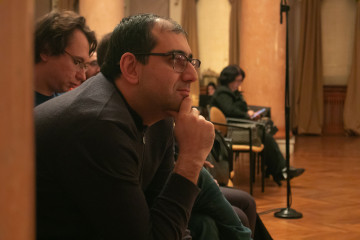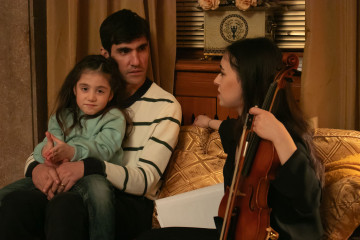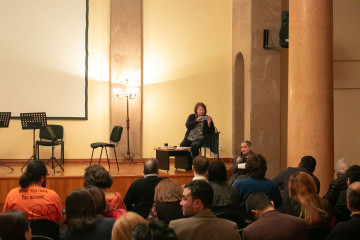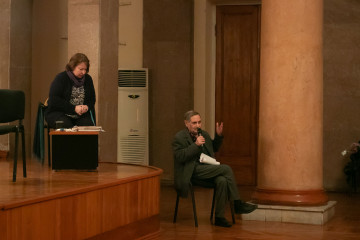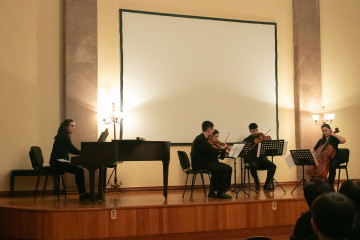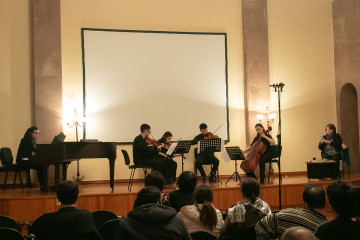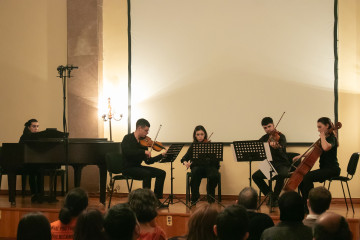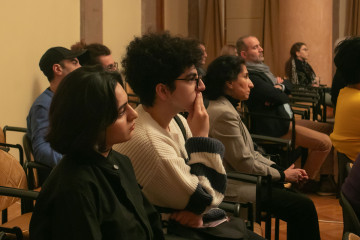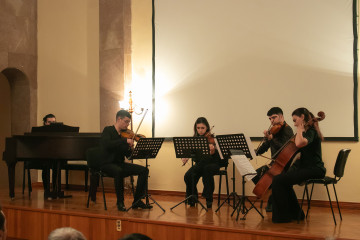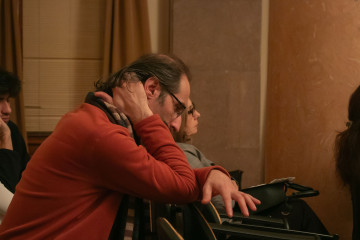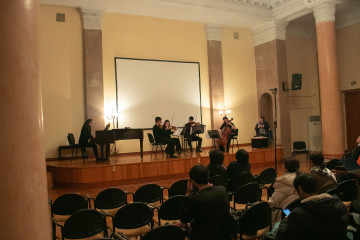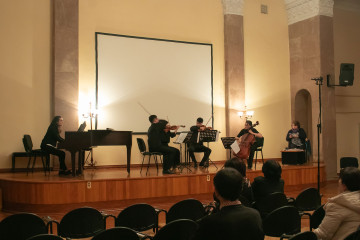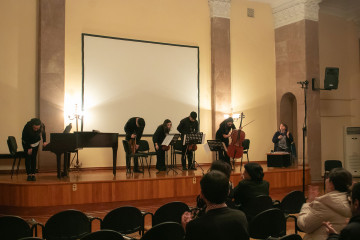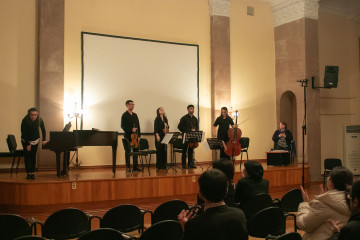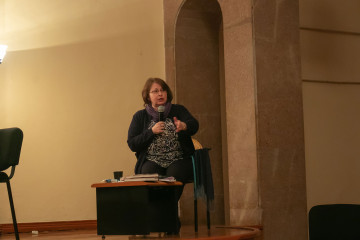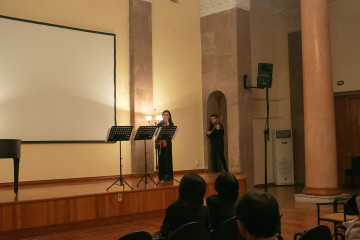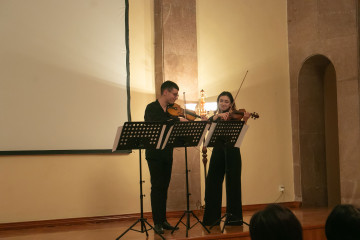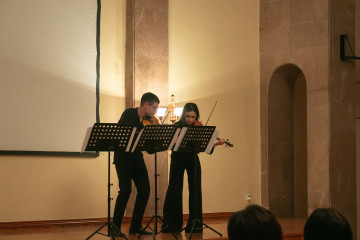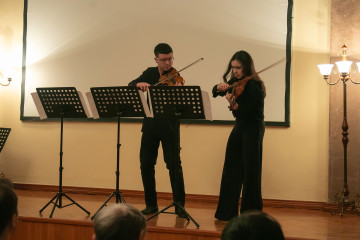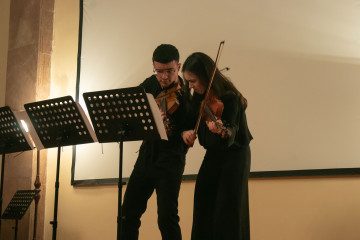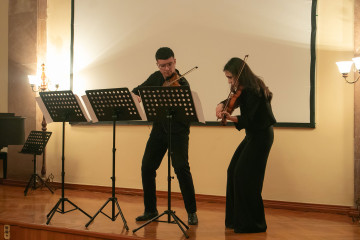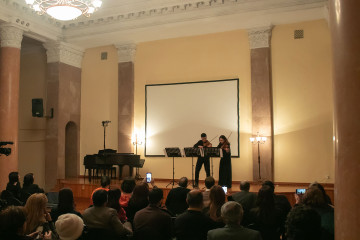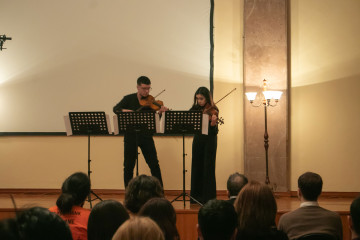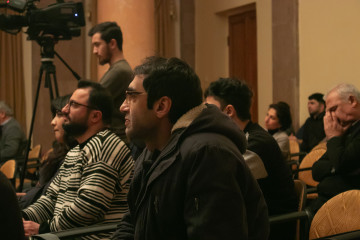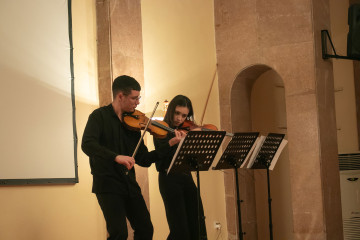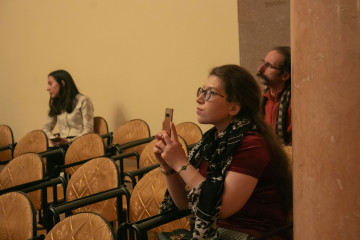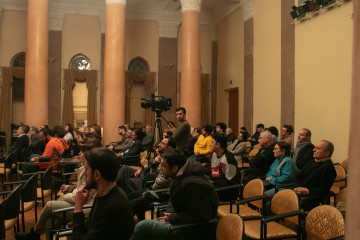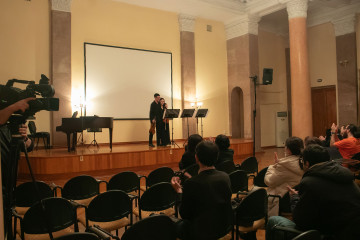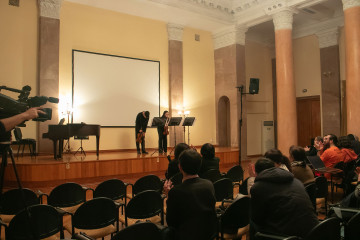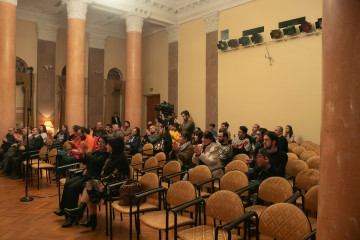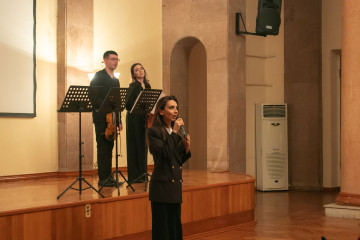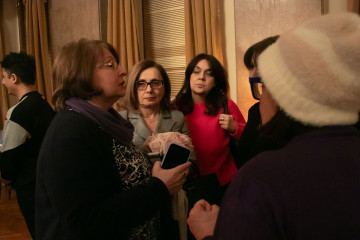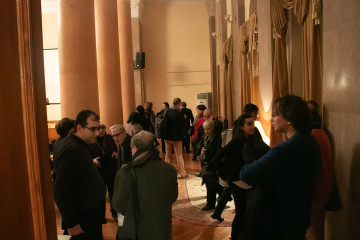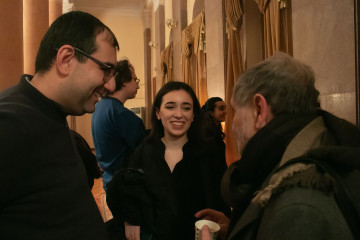“Musical Evenings at the Museum” Rahilia Hasanova – Portrait Concert
Baku Contemporary Music Society, in collaboration with the Museum Center, invites you to a portrait concert as part of the “Musical Evenings at the Museum” project. The theme of the evening is the oeuvre of composer Rahilia Hasanova. The event will take place on January 29 at 18:30 (Museum Center, 3rd floor, Assembly Hall).
Rahilia Hasanova is one of the most prominent and distinctive figures in contemporary Azerbaijani music. The composer draws her ideas from the rituals of the Azerbaijani people, ancient games, religious music, Sufi philosophy, carpet art, and much more. In this regard, the so-called “musical carpet gallery” is intriguing (“Pirabadil”, “Zili”, “Verni”, etc.), where the composer seeks to create a musical analogue to the symbols, ornaments, and repeated geometric figures of carpets. Hasanova introduced genres and forms of religious music into academic music, as well as plots and images associated with Sufism (“Dervish”, “Marsiya”, “Qasida”, etc.). The composition “Sema’” was performed in 1999 in Amsterdam at the “Requiem for a Millennium: New Spiritual Music” festival (Festival Nieuwe Spirituele Muziek) alongside works by A. Pärt, G. Kancheli, J. Adams, Tan Dun, G. Bryars, and others. Hasanova was the only composer representing the Islamic world at this festival.
Some stylistic features of Hasanova, such as the reduction of musical material to a minimum and repetitiveness, draw parallels with classical examples of minimalism. The composer employs such techniques to reflect the distinctive features of ethno-culture, energize the dramatic line, and enhance the emotional power of the music.
The texture of Hasanova's compositions is built on the principle of multipolyphony. The composer refers to this aspect using the term “holopolyphony” (from Greek “holos” — whole, complete + polyphony). In the context of economizing “building material”, the diversity and richness of the rhythmic organization of the music attract attention.
Recently, Hasanova has been enriching her style with new aspects, incorporating knowledge gleaned from exact sciences through the prism of her artistic ideas and emotions. The composer is convinced that in music, the two most significant and interconnected factors are the strict logic of material development and beauty.
It is worth noting the titles of her works in recent years. Alongside native-themed compositions like “Yurt”, “Gaval Dash”, “Khazri-Gilavar”, “Yallyvari”, there are pieces such as “Eos-Helios” for symphony orchestra, the Piano Quintet “Perfect Equilibrium”, “Solar Winds” for a woodwind quartet, and “Penetrations” for solo bass clarinet. It can be observed that in recent years, the composer has moved beyond national themes. Despite the fact that previously, a characteristic feature of her creativity was the embodiment of ethno-specific concepts in music.
Hasanova's works are performed not only in her homeland but also beyond its borders, including in the United States, England, Germany, Austria, Italy, France, Switzerland, Russia, Ukraine, the Netherlands, Japan, Israel, and other countries. Her compositions are also featured in the programs of prestigious international festivals. The composer has successfully held solo concerts in the United States, the United Kingdom, Germany, and Poland. In 2004, the compact disc “Derwisch” was released in Germany.
For three consecutive years (1998–2000), R. Hasanova represented Azerbaijan at the “Donne in Musica” festival (“Women in Music”), founded in Italy by musicologist and vocalist Patricia Adkins Chiti in 1978. In 1993 and 2003, Hasanova presented solo concerts in Baku under the title “Merac gecəsi” (“Night of Ascension”).
As part of the portrait concert, the following compositions will be performed: “Tetraxis” for string quartet (1995), “Jasmine Petals” for solo piano (1998), “Perfect Equilibrium” for piano quintet (2016), and “Rondo for Two” for two violins (2012). The soloists are Rena Fakhradova (piano), Fatima Nasirli (violin), Umid Mustafazade (violin), with musicologist Shafagat Mamedova as the moderator. A distinctive feature of the musical evening will be comments on the compositions by Professor Zumrud Dadashzade.
“Your music is a significant event, a great phenomenon... Write as much beautiful music as possible. I have listened to your ‘Pirabadil’ and the piano sonata several times lately. I love this music very much and am always impressed by the freshness of the sound and your musical ideas.” — Krzysztof Meyer
“I really, really, really like Səma’! Here you have found the perfect embodiment of form and content. Everything here revolves like in a ritual dance, like in the Universe.” — Zmira Lutzky, Music Director of the Israel Contemporary Players
‘In her work, original, individual musical material blends with captivating dramaturgy — unclear and even mysterious. For decades, I have been to numerous contemporary music festivals — in Yugoslavia, throughout Europe (Donaueschingen, Kassel, Paris, Warsaw, etc.). I have listened to a huge amount of music and could not explain to myself what amazed me so much about Rahilia Hasanova's music. We are completely different personalities, shaped in different social systems, traditions, and educational systems. Perhaps, Rahilia Hasanova's music is more suited to my emotional and spiritual state... I think, without her music, this unique and irreplaceable life would be much poorer.” — Dushan Mikhalek
